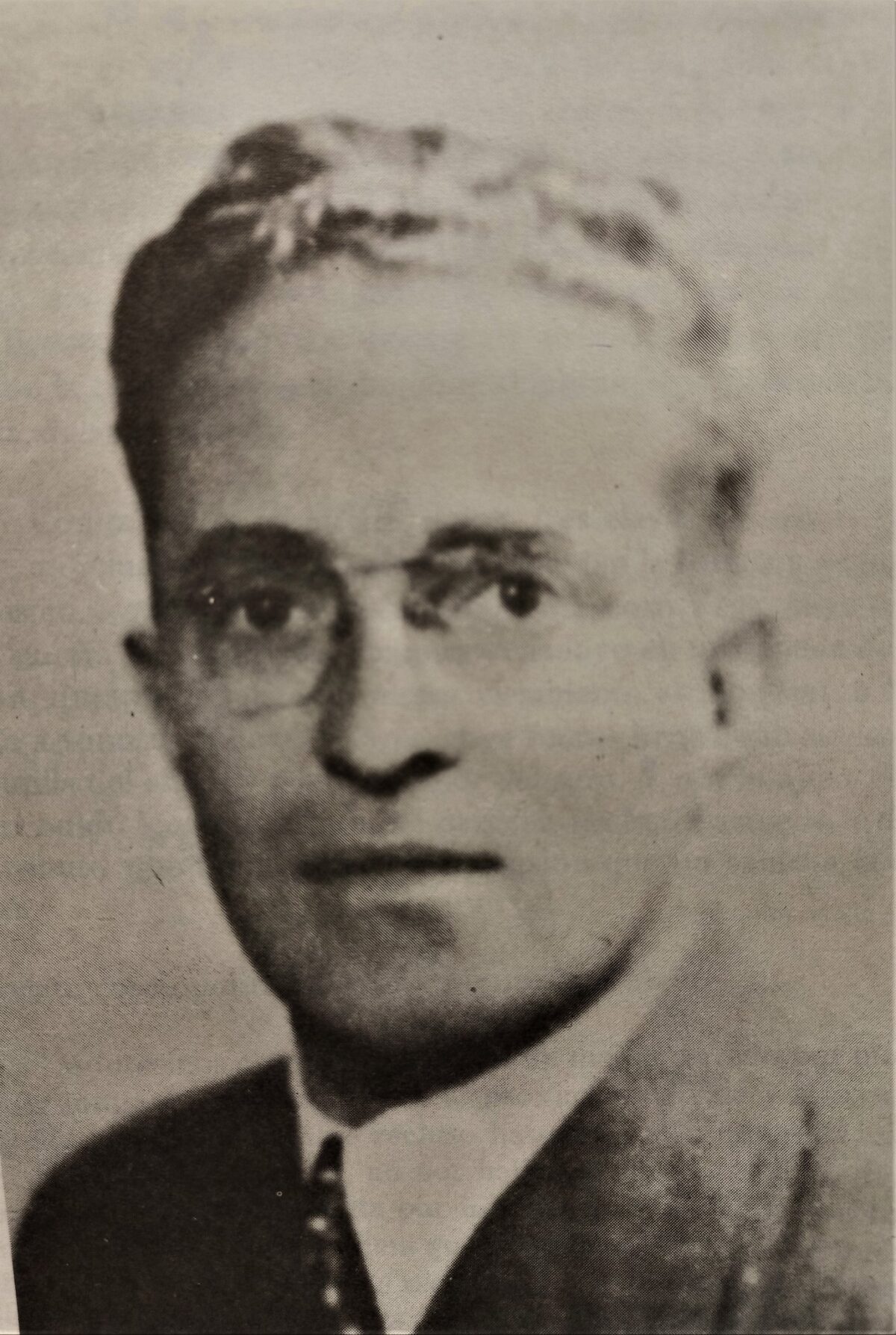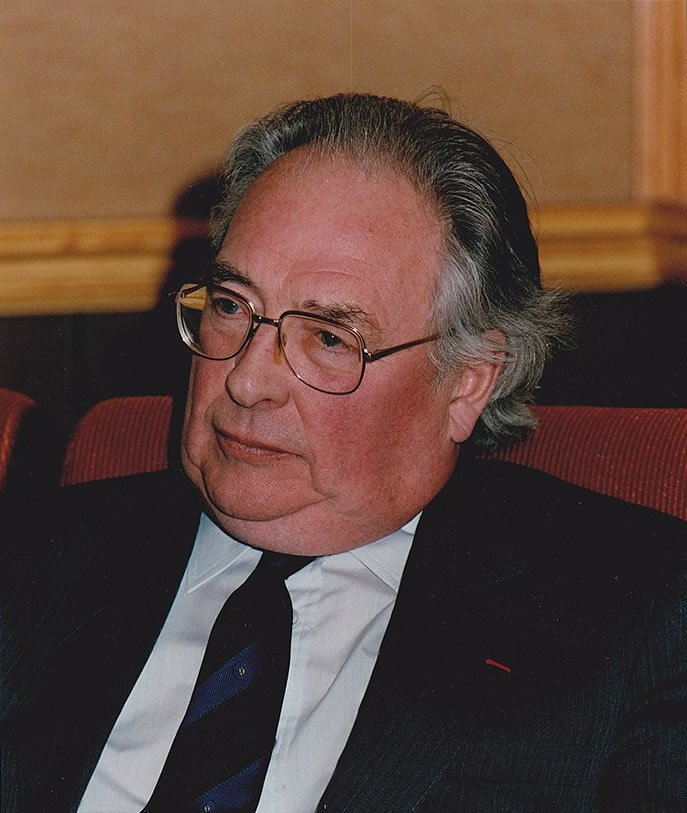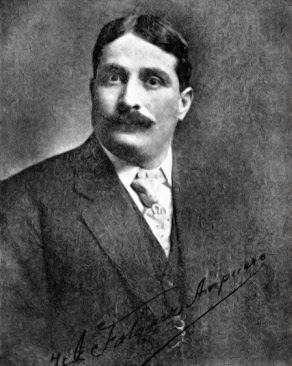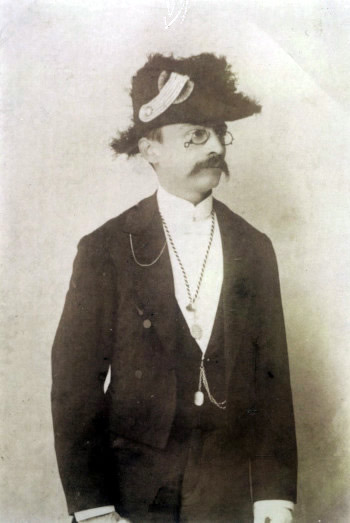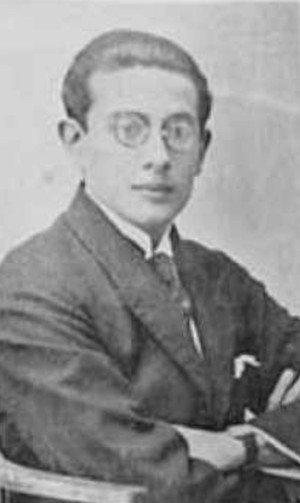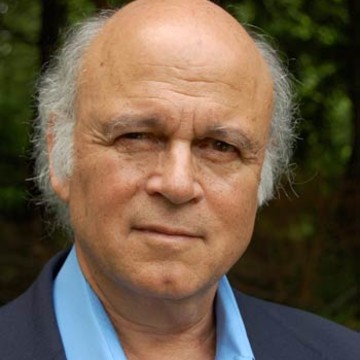Arturo Montesinos Malo (Cuenca, August 31, 1913 – May 23, 2009) was an Ecuadorian novelist, professor, and translator who lived in the United States for many years where he worked as a translator at the United Nations in New York. In 1959, he received the “José de la Cuadra” Award for his short story collection “Arcilla indócil,” which is considered by many to be his best work. Some of his Spanish-to-English translations of contemporary writers’ short stories and poems appeared in Letras del Ecuador.
Continue reading “Arturo Montesinos Malo”Category: Translators
Bernard M. Dulsey
Bernard Martin Dulsey (Chicago, IL, February 27, 1914 – San Clemente, Orange, California, November 4, 1992) was an American professor, scholar, editor, and translator. In 1964, Southern Illinois University Press published “The Villagers,” an authorized English translation by Bernard M. Dulsey of Ecuador’s most famous novel, “Huasipungo,” in collaboration with its author Jorge Icaza. Mr. Dulsey was a professor emeritus of the foreign language and literature department of the University of Missouri-Kansas City. He earned his doctorate at the University of Illinois and worked as a prose editor for the Library of Congress’ annual Handbook of Latin American Studies. He was also an associate editor of the Kansas City Review and contributed to a number of scholarly journals in the United States and abroad.
Continue reading “Bernard M. Dulsey”Claude Couffon
Claude Couffon (Caen, Normandy, France, May 4, 1926 – December 18, 2013) was a renowned Spanish-to-French translator, French poet, Sorbonne Université professor, and an expert in Spanish and Latin American literature. In 1960, Couffon translated Jorge Icaza’s 1958 novel “El Chulla Romero y Flores” into French as “L’homme de Quito.” It was serialized in Les Lettres Francaises, (Nº833, July 14–20, 1960). French publisher Éditions Albin Michel released “L’homme de Quito” as a book in 1993. Couffon’s translations were instrumental in promoting Spanish-language writers in France. He translated the works of several Nobel laureates, including Spain’s Camilo Jose Cela, Colombia’s Gabriel Garcia Marquez, Chile’s Pablo Neruda, and Guatemala’s Miguel Angel Asturias. In 2003, Claude Couffon translated Ecuadorian author Rocío Durán-Barba’s novel “París sueño eterno” (1997).
Continue reading “Claude Couffon”Luis F. Veloz
Luis F. Veloz (Quito, 1885-1959) was an Ecuadorian poet and sculptor. Along with his friends Aurelio Falconí and Julio E. Rueda, he founded Altos Relieves, one of the first magazines to publish young poets influenced by modernismo in Ecuador. His poems were published in Altos Relieves and the magazine Revista de la Sociedad Jurídico-Literaria. He wrote about art and translated some of the poems of the Italian poet Gabriele D’Annunzio into Spanish. He stopped writing verses to focus on sculpting. In 1918, the Ecuadorian government sponsored him to go the school of Fine Arts in Rome, where he lived for many years. He’s best remembered for his controversial marble statue La Bacante y el Fauno, which was commissioned by the Illustrious Municipal Council of Quito (Ecuador) and created in Rome. Today this statue can be found in the Malecon 2000 in Guayaquil. A collection of his poems and some plays have yet to be published.
Continue reading “Luis F. Veloz”Francisco J. Falquez Ampuero
Francisco José Falquez Ampuero (Guayaquil, April 17, 1877 – Guayaquil, March 23, 1947) was an Ecuadorian poet, lawyer, diplomat, prosecutor, prose writer and French to Spanish translator. He was appointed Governor of León Province by President Eloy Alfaro (his godfather) and held various other public posts. His rich and extensive literary production includes verse, fiction and journalism. His sonnet collection, Gobelinos (1919), received praise from critics and literati, and is regarded as his best work. He participated in the movements that culminated in the bloody Revolution of November 15, 1922, hence the government of President José Luis Tamayo (1920 – 1924) ordered his exile to Lima, Peru, where he remained until 1923. He then returned to Guayaquil to practice law.
Continue reading “Francisco J. Falquez Ampuero”Miguel Valverde
Miguel Valverde Letamendi (Guayaquil, December 6, 1852 – Rome, April 19, 1920) was an Ecuadorian politician, diplomat, writer, poet, journalist and translator. He is considered a precursor of modernismo in Ecuador. In 1890 he was the Director of the Municipal Library of Guayaquil. In 1915 he published “Libro de versos,” containing a translation of Victor Hugo’s “Religions et religion,” a political tract supporting belief in God but attacking organized religion, which caused a scandal among followers of the church. Due to his political views he was often arrested and many times exiled. He also served the country in various governmental posts during the presidencies of his allies. In 1883, General Eloy Alfaro appointed him Minister of the Interior, War and Foreign Relations of the Governments of Manabí and Esmeraldas. In 1901, General Leonidas Plaza appointed him Minister of the Interior and Police.
Continue reading “Miguel Valverde”José Antonio Falconí Villagómez
José Antonio Falconí Villagómez, aka Jose A. Falconí Villagómez or J.A. Falconí Villagómez, (Guayaquil, May 26, 1894 – Guayaquil, 1967) was an Ecuadorian poet, literary critic, translator, and medical doctor. In 1910 he began publishing his poems in the magazine El Guante, and by 1913 in El Telégrafo. In 1916 he founded the magazine Renacimiento, in which he published his poem, “Ruth adora a los cisnes.” He was greatly influenced by the French Symbolists of his time and was a champion of the avant-garde in poetry. In 1921 he published, “Arte Poética nº 2,” a dadaist poem which introduced the European avant-garde into Ecuadorian letters. In 1953 he was designated a Member of the House of Ecuadorian Culture. In 1964 he was decorated with the National Order of Merit, and in 1965 the city of Guayaquil conferred on him the Gold Medal of Literary Merit.
Continue reading “José Antonio Falconí Villagómez”Alexis Levitin
Alexis Levitin is an American award-winning translator of poetry and prose from Spanish and Portuguese to English. Among his 40 books of translations, he has translated Ecuadorian authors such as Ana Minga (Tobacco Dogs, 2013), Santiago Vizcaino (Destruction in the Afternoon, 2015) and Carmen Váscones (Ultraje/Outrage, 2018). He has also translated the leading authors of Brazil and Portugal. He has received fellowships from the National Endowment for the Arts, the National Endowment for the Humanities, the Fulbright Commission, the Witter Bynner Foundation, the Gulbenkian Foundation, and Columbia University’s Translation Center, which awarded him the Fernando Pessoa Prize. A Distinguished Professor at SUNY Plattsburgh, he has given readings and lectures on translation at well over one hundred colleges and universities in the U.S., as well as institutions in Brazil, Portugal, Ecuador, the Czech Republic and France.
Continue reading “Alexis Levitin”
